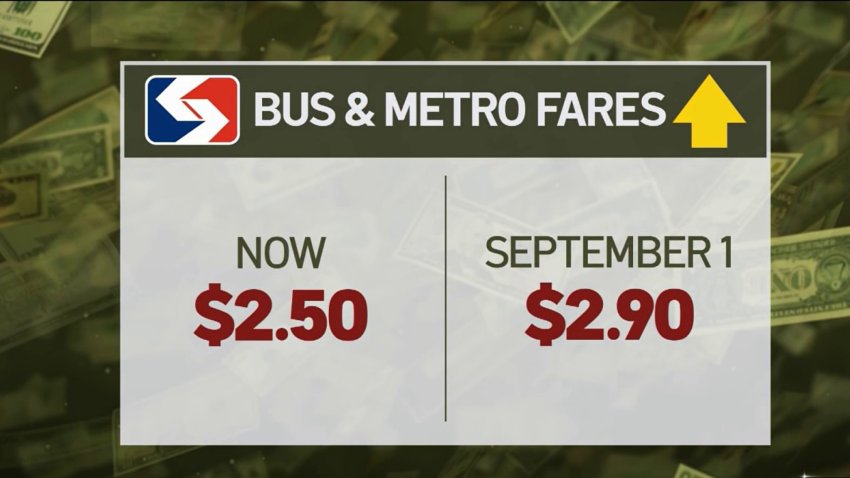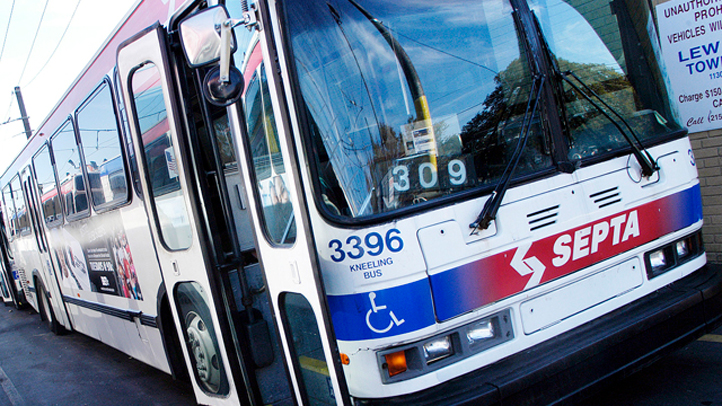Anger and frustration is pouring in across the region due to the SEPTA funding crisis. The transit agency plans to eliminate routes and hike fares. NBC10’s Aaron Baskerville spoke with frustrated SEPTA riders.
Philadelphia's mass transit provider, SEPTA, has unveiled a budget proposal that will include service cuts and fare increases as part of a looming “transit death spiral.”
Stream Philadelphia News for free, 24/7, wherever you are with NBC10.
The proposal includes deep cuts to services across the board, including shutting down all rail services by 9 p.m. and fare increases that would jump from $2.50 to $2.90 per ride.
What's in the budget proposal?
Get top local Philly stories delivered to you every morning with NBC Philadelphia's News Headlines newsletter.
As reported by NBC10 newsgathering partner KYW NewsRadio, the new budget doesn't assume that SEPTA will get any of the $168 million increase that Shapiro included in his recent state budget proposal and instead focuses on a doomsday spending plan.
"Going into Fiscal '26, we're not going to make that same mistake. We are going to budget not on hope, but on reality," SEPTA's interim general manager Scott Sauer told KYW NewsRadio's Mike DeNardo.
Without an influx of new funds, Sauer said the mass transit provider would need to reduce service by about 45% by July of 2026.
Other cuts would include:
- Removing 50 bus routes from service.
- Ending service on five regional rail lines.
- All trolley routes would be converted to bus lines.
- Whole bus depots would be closed.
- Fares would increase from $2.50 to $2.90 a ride.
- Rail service would end at 9 p.m.
"When we impose a 9 p.m. curfew on our rail services, we won't be able to serve the sports complex. We won't be able to serve the Convention Center," warned Sauer.
In a fact sheet released ahead of Thursday's announcement, officials warn that, unless funding arrives, "the region will catastrophically change" due to the moves that would be taken during this funding crisis.
The cuts would begin as early as this August with 32 bus routes eliminated and 16 others shortened, while all bus, metro and regional rail lines would run less frequently.
Even after all these cuts, without new funding, Sauer said that SEPTA would still need to move $113 million from its reserves in order to operate with a balanced budget.
SEPTA, Sauer said, is facing a $213 million structural deficit and the budget that will be presented on Thursday is intended to reflect the reality that the mass transit provider would turn to, unless the governor's proposed funding boost arrives.
"This is utilizing every resource we have at our disposal to close the budget on our own without a funding solution from Harrisburg," he said. "It's a bad budget."

Public hearings on budget proposal
SEPTA will hold four public hearings about the proposed operating budget. These are scheduled for May 19, 2025 at 11 a.m. and 5 p.m. at SEPTA’s headquarters at 1234 Market Street, in Philadelphia, as well as on May 20, 2025, at 10 a.m. and 4 p.m.
Hearings on the capital portion of the budget are scheduled for May 21, 2025 at 10 a.m. and 4 p.m. also at SEPTA's headquarters.
"All this would leave our city and region with a SEPTA that is a shadow if its self," Sauer said in unveiling the proposed budget on Thursday. "This doesn't have to happen."
The SEPTA Board will then vote on the proposal during its meeting on June 26, 2025, with the spending plan going into effect with the start of the new fiscal year on July 1.
Gov. Shapiro calls for legislators to act
The announcement comes a few months after Pennsylvania Gov. Josh Shapiro ordered PennDOT to flex $153 million of federal highway capital funds to SEPTA.
SEPTA's 'transit death spiral'
The order, which occurred on Friday, Nov. 22, 2024, allowed SEPTA to avoid immediate service cuts and delay the fare increases until July 1, 2025.
Prior to Shapiro’s order, SEPTA had warned they would have to increase fares 29% and reduce services by 20% due to an annual structural budget deficit of $240 million. The nation’s sixth-largest mass transit system said they were forced to implement the new plan after a state budget that would have given them an influx of $161 million was shot down by legislators in Harrisburg.
Shapiro cautioned that his order would only delay SEPTA’s service cuts and fare increases until the summer and that it was only a short-term solution.
Shapiro also emphasized the importance of finding a permanent solution to SEPTA's financial crisis as the Philadelphia region prepares for 2026, a year that will feature several major events in the city, including America's 250th anniversary celebration, the FIFA World Cup and the MLB All Star Game.
“We’ve got to make sure that SEPTA is there for all those folks who come to visit. We’ve got to make sure that SEPTA can serve our neighbors who rely on it every day as well as the millions of visitors who come to Pennsylvania for their great American getaway over the course of the next several years," Shapiro said. "I think we have a huge opportunity in front of us with USA 250 coming to Pennsylvania and we need SEPTA to be able to help support that and I’ve made clear I will not let SEPTA fail.”
In response to SEPTA announcing, what Sauer called a "bad budget" proposal, Shapiro said state legislators need to come together to get the mass transit provider the funds that in needs.
“We have known for some time that SEPTA is in dire straits – as are other mass transit agencies across this Commonwealth. It's why, twice in a row in my budgets, I've proposed historic funding for mass transit – roughly $300 million, about $170 million or so would come to SEPTA in particular. We've got to get that passed. People here in the Philadelphia region deserve the ability to hop on a bus, a train, a trolley, and get to work, get home to their kids, see their kids game, get to doctor’s appointments."
In a post online, Pa. Sen. John Fetterman too called for legislators in Harrisburg to come together to find a solution.
Increased fares, bus routes eliminated, rail service reduced—this isn’t good for anybody.
— U.S. Senator John Fetterman (@SenFettermanPA) April 10, 2025
Pennsylvania’s leaders must come together to fix this funding issue soon and prevent these devastating impacts from rolling out. pic.twitter.com/WbWEeU1H5H
Republican leader says Pa. taxpayers shouldn't foot the bill
In reacting to SEPTA's proposed budget, Pennsylvania's Senate Majority Leader, Republican Joe Pittman said it's not the responsibility of all Pennsylvania taxpayers to ensure the transit provider has the funding it needs.
Instead, Pittman suggested that "any failure to act on additional funding" should fall at Shapiro's feet.
“Gov. Shapiro is seeking billions more in state spending as part of the budget this year, yet the reality of our fiscal situation in Pennsylvania is that massive spending increases are unrealistic due to the commonwealth’s structural shortfall. While the state budget cannot be all things to all people, spending negotiations are a two-way street, making any failure to act on additional funding equally the responsibility of the governor," Pittman said in a statement to NBC10. "It is worthwhile noting that SEPTA has demonstrated a degree of progress with riders paying a fairer share and implementation of greater efficiencies. But the state cannot be left fully footing such a large transit increase. Given their own struggle with a structural deficit, I believe SEPTA should have an appreciation for our commonwealth’s fiscal deficit and come to the table with more modest requests. This burden should not be placed entirely on Pennsylvania taxpayers, most of whom do not live within the service region and do not realize any benefit from SEPTA.”
Sign up for our Breaking newsletter to get the most urgent news stories in your inbox.





